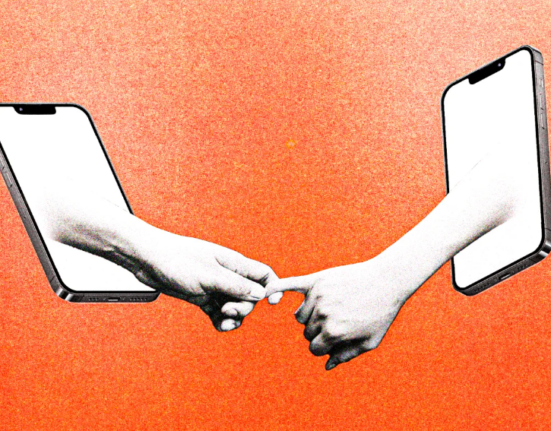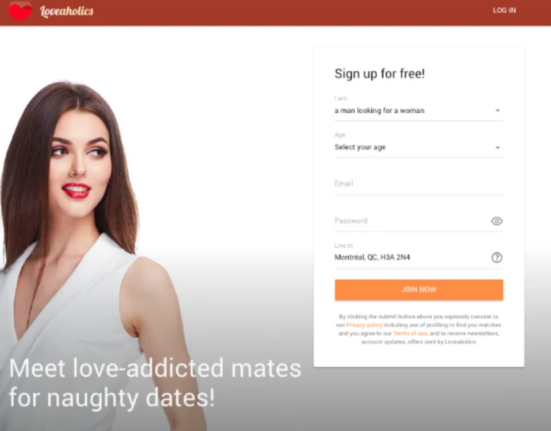Last Updated on October 28, 2025 by Rachel Hall
- Why Gen Z Couples Turn to AI for Dating and Relationship Advice: How ChatGPT Became the Modern Wingman for Breakup Texts and Modern Love
- 1. Using ChatGPT to Generate the Perfect Breakup Text
- 2. Turning to AI Dating Assistants Like Rizz and YourMove AI
- 3. AI Could Help You Improve Your Dating Profile for Better Matches
- 4. Getting Dating Advice from AI-Powered Therapists
- 5. AI Can Help Couples Navigate Difficult Conversations
- 6. AI Protects Privacy While Offering Emotional Suppor
- 7. Are We Outsourcing Too Much to AI in Modern Love?
- FAQs: Common Questions About AI and Relationships
- Final Thoughts: AI and the Future of Romance
Why Gen Z Couples Turn to AI for Dating and Relationship Advice: How ChatGPT Became the Modern Wingman for Breakup Texts and Modern Love
Modern romance isn’t what it used to be. As traditional communication gives way to digital dialogues, more and more people are turning to AI to help them navigate their dating and relationship challenges. From crafting the perfect breakup text to optimising your dating profile, artificial intelligence is fast becoming the go-to dating assistant for love-struck users looking for clarity, confidence and clever conversation starters.
This emerging trend is being driven largely by Gen Z, a generation that grew up with tech in their hands and aren’t afraid to experiment with tools like ChatGPT or YourMove AI when it comes to matters of the heart. In fact, according to a recent survey conducted by Match Group, almost half of Generation Z has already used ChatGPT or similar tools for romantic support.
So, what does this digital shift look like in practice? Let’s explore seven surprisingly useful ways people are using AI to enhance their love lives.
1. Using ChatGPT to Generate the Perfect Breakup Text
Breaking up is hard to do — but now, bots can do it for you. More specifically, people use AI like ChatGPT to generateemotionally intelligent, tactful breakup messages that sound personal, without sounding cold.
Whether you’re looking to end a relationship gently or navigate a messy situation, all it takes is a simple prompt like: “Write a respectful message to break up with someone I’ve been dating for three months.”
This might sound impersonal, but for many, it’s a relief. One 23-year-old user shared that AI helped her “sound mature without being too emotional.” Some even upload screenshots of previous chats to give context, allowing the bot to fine-tune its reply to the situation.
AI for help here isn’t about avoidance — it’s about getting guidance when emotions are high and judgement is clouded. Tools like this provide a neutral, structured framework in emotionally tense moments.
2. Turning to AI Dating Assistants Like Rizz and YourMove AI
Meet your new AI wingman: the dating app bot. Apps like Rizz (short for charisma) and YourMove AI offer smart advice on what to say, when to say it, and how to keep the conversation flowing. These tools review your chats, assess tone, and suggest responses in real-time — helping users maintain witty, thoughtful interactions even when they’re feeling socially drained.
AI dating assistants are particularly helpful for introverts or those feeling unsure of what to say next. For instance, Rizzallows users to submit a chat log and get an immediate suggestion on how to respond in a way that sounds like them, only more confident.
The app learns from your tone, your preferences, and your style, eventually producing AI-generated messages that are polished, persuasive, and personal.
3. AI Could Help You Improve Your Dating Profile for Better Matches
First impressions matter — and in the online dating world, that first impression is your profile. Many users are turning to AI to edit, refine or even completely generate compelling dating profiles that showcase their best qualities.
Instead of writing “I like music and dogs”, a bot might suggest: “Passionate about indie gigs, Saturday hikes, and sharing playlists over coffee.” That’s the difference between a swipe left and a spark.
AI can also assess which parts of your profile may be vague, repetitive, or inconsistent. It’s like having a dating coachwho doesn’t judge — only improves.
4. Getting Dating Advice from AI-Powered Therapists
While AI isn’t a substitute for a real therapist, it does act as a sounding board for millions seeking casual relationship advice. Many dating assistant tools are powered by LLMs (Large Language Models) trained to reflect psychological and therapeutic insights — helping users manage difficult emotional situations with greater calm and clarity.
When someone feels overwhelmed after being ghosted or miscommunicates with a partner, they may turn to AI for instant relief. Asking ChatGPT things like: “Why does he not text back even though we had a great date?” often results in thoughtful, even therapeutic responses.
These tools can help people process emotional reactions and reframe their thinking in more constructive ways — a kind of therapy-lite, if you will.
5. AI Can Help Couples Navigate Difficult Conversations
Some couples are even using AI to navigate conflicts together. In one widely shared story, a couple having communication issues used ChatGPT to translate their arguments into clearer, more emotionally attuned language.
For example, one couple might argue about feeling neglected. Instead of lashing out, they prompt the bot with both sides of the issue and receive a response that reflects both emotional needs and compromise.
This kind of third-party moderation — even from a bot — can reduce tension and promote productive dialogue.
However, it’s important to remember that bots can exhibit sycophancy — agreeing with your perspective by default. So, always use this feedback as a guide, not gospel.
6. AI Protects Privacy While Offering Emotional Suppor
A huge draw for many users is the sense of privacy AI offers. Unlike friends or family, bots don’t gossip, judge or share your secrets.
For someone trying to break up with someone, or feeling emotionally fragile after a messy dating and relationshipmoment, this kind of confidentiality is priceless. A user can ask, “Can you help me write a message telling my ex I need space?” and receive structured, emotionally-aware advice without fear of exposure.
This makes AI an ideal option for people who want advice but aren’t ready to speak to a therapist or relationship expert. As one user said, “I needed someone, and the bot was there at 3 a.m.”
7. Are We Outsourcing Too Much to AI in Modern Love?
With all this digital help, it’s fair to ask: Are we losing the ability to manage relationships on our own?
Critics worry that people are becoming dependent on bots for basic interactions — from how to flirt, to when to say sorry. This raises questions about authenticity, emotional maturity, and our ability to form deep human connections without technological mediation.
Moreover, while bots are helpful, they aren’t infallible. Artificial intelligence models like ChatGPT may mirror biases, over-validate problematic behaviours, or suggest language that sounds artificial or overly scripted.
Still, as long as we use these tools mindfully — to support, not replace, human interaction — they can be a valuable part of our evolving romantic landscape.
FAQs: Common Questions About AI and Relationships
Q: Can AI really understand romantic feelings?
Not truly — but it can mimic empathy and provide structured feedback. It’s best used as a tool, not a replacement for real human understanding.
Q: Are AI-written messages obvious to others?
Sometimes. Tiktok users have even shared how they detected AI-generated breakup messages using online detectors. A personal touch is key.
Q: Is using AI in dating unethical?
It depends on transparency. If you’re using AI to sound more confident, that’s one thing. If you’re pretending an AI wrote every word of your love letters… maybe reconsider.
Final Thoughts: AI and the Future of Romance
From dating apps to heartbreak recovery, it’s clear that AI is here to stay in our romantic lives. Whether you’re using OpenAI tools like ChatGPT, or experimenting with apps like Rizz, the ability to get fast, judgement-free guidance is reshaping how we date, connect, and care.
But as always, balance is key. AI for dating should be a helpful co-pilot, not the driver. The spark of real connection — whether on a first date or during a heartfelt message — still belongs to us.

Rachel Hall, M.A., completed her education in English at the University of Pennsylvania and received her master’s degree in family therapy from Northern Washington University. She has been actively involved in the treatment of anxiety disorders, depression, OCD, and coping with life changes and traumatic events for both families and individual clients for over a decade. Her areas of expertise include narrative therapy, cognitive behavioral therapy, and therapy for traumatic cases. In addition, Rachel conducts workshops focusing on the psychology of positive thinking and coping skills for both parents and teens. She has also authored numerous articles on the topics of mental health, stress, family dynamics and parenting.








Leave feedback about this